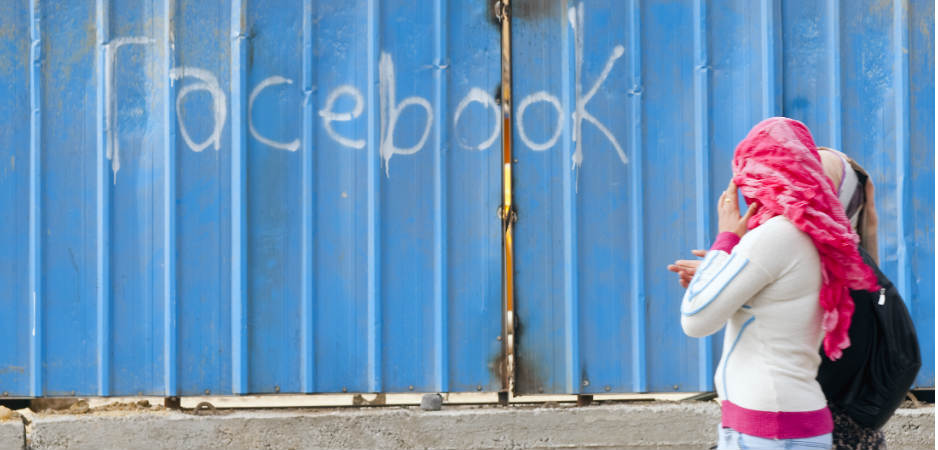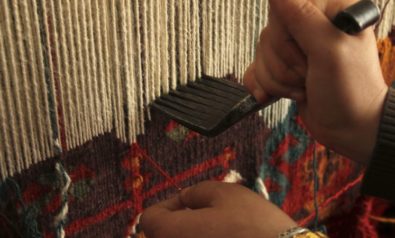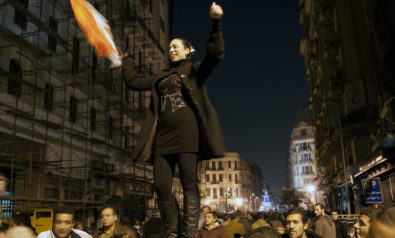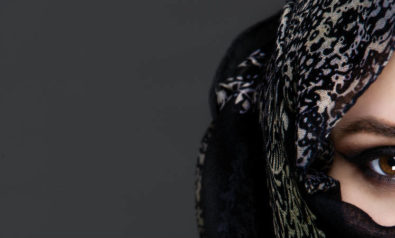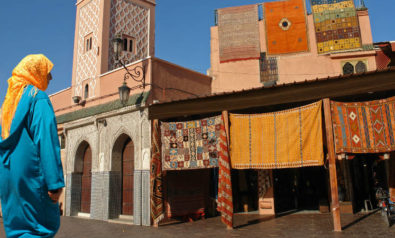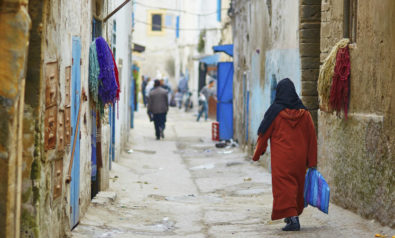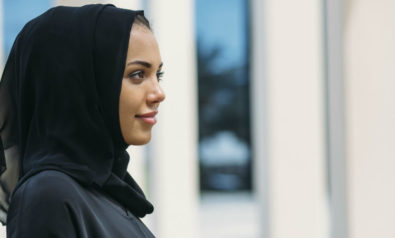In this edition of The Interview, Fair Observer talks to Alia Soliman, the communications manager of HarassMap, an anti-sexual harassment organization in Egypt.
When events of May 25, 2005—a day when female protesters against Egyptian President Hosni Mubarak were sexually assaulted as the police penned them in—threw the evidence of a prevalent practice into the spotlight, it was uncovering a well-established tradition. What became known as Black Wednesday marked the beginning of a battle against institutionalized and systematic use of sexual violence to silence women in conservative Egypt—a fight made possible by the accessibility to smartphones and social media.
The Egyptian Revolution of 2011 and the mass protests in Tahrir Square further highlighted the ubiquity of sexual violence in the country, with a United Nations (UN) study finding that almost 100% of women have experienced it. A 2014 law finally criminalized all forms of sexual harassment, now punishable with up to five years in prison and a $5,500 fine. Its implication and enforcement, however, remain a work in progress.
Women have increasingly taken matters into their own hands to challenge public perceptions, eliminate victim blaming and enforce real social and political change. HarassMap was launched in 2010 as a response to the sexual harassment epidemic, which at that point was still largely taboo. It has since partnered with leading universities, local supermarkets and services like Uber to help create safe spaces for women across Egypt.
In this edition of The Interview, Fair Observer talks to Alia Soliman of HarassMap about the work its volunteers do online and on the streets to help end sexual violence in Egypt for good.
Anna Pivovarchuk: Sexual harassment in Egypt has been put on the map during the revolution—it sort of exploded. HarassMap started out of personal experience, which was shared by so many. Just how big of a problem are we talking about?
Alia Soliman: The last research that we did, in 2014, one of the most striking things it showed was that 95.3% of women who participated in the survey were sexually harassed in greater Cairo. So that was a shocking number. UN Women did a study in 2013 which showed that 99.3% of women get sexually harassed all over Egypt, not just in Cairo. Obviously the numbers are very high and the problem is still there.
Pivovarchuk: What drives this type of harassment? Is it cultural stereotypes, impunity? Do women report it?
Soliman: Why does it happen? All the factors and the context are different, depending on the specific situation and where it happens—if it happens on the street, if it happens at a company or workplace, or university, for example. But still, it happens to everyone. Women who wear the veil get harassed, women who wear the burqa or the niqab get sexually harassed, even men get sexually harassed—which is one of the things that we also try to talk about in our trainings. Every now and then we try to make people realize that anyone can get sexually harassed, but women are the most affected because of the problem perception of how women are inferior to men.
So many remain silent when they are sexually harassed. Bystanders don’t intervene and, accordingly, sexual harassment has become very normalized and socially acceptable, and what we mean by the social acceptability—even though it’s a crime under Egyptian law, no one treats sexual harassment as a crime. We always say that it’s good that sexual harassment is now criminalized, that it is a written law, that all types of sexual harassment are a crime, but we still need work from people, for them to realize that the law criminalizes this. That is why we always have awareness campaigns like Harasser-Criminal—a simplified explanation of the article of the law that states that.
Another reason why the problem keeps on happening is the excuses and the blaming. So in addition to having sexual harassment being normalized and socially acceptable in Egypt, there are always these excuses and blaming. For example, if a woman wearing a burqa gets sexually harassed, we’ve heard it so many times that she must have been walking in a way that was provocative, even though she is wearing a burqa. We are trying to say to the people in our trainings and on the street that this is not the problem; that the problem of what the woman is wearing does not encourage the harasser to sexually harass her. This happened because he wants to harass this woman, and this is normal behavior. If he knew that he wouldn’t get away with his crime, he wouldn’t have done this.
One of the things you hear said is, “You know what, he may be poor and he doesn’t have money or a chance to get married, buy a house and so on.” But we keep repeating that even a CEO of a company sexually harasses people, being married with children, will still sexually harass women on the street because he knows that he will get away with it. He keeps doing it over and over again, and he knows that the woman is silent and bystanders on the street remain silent about the problem too. So one of our earlier campaigns from 2013, called Why Does Sexual Harassment Happen? addressed all these excuses directly.
Pivovarchuk: So if sexual harassment is in principle punishable by law, do these cases ever get to court? Are they actually prosecuted?
Soliman: The law was there but it didn’t have the word sexual harassment in it. Now, Article 306(a) and 306(b) includes all types of sexual harassment—via phone, internet—not just physical sexual harassment. Even verbal sexual harassment is criminalized. All of this is good, of course. But it all depends on how much we make use of this law.
So, everyone needs to be aware of the problem, women need to report, bystanders need to intervene. From our work, we know that not many women have had a chance to go to the police, because sometimes the parents don’t want have their daughters to defend themselves in court; they feel like all this is very problematic for the daughters. Sometimes we offer assistance of other groups like Nazra for Feminist Studies, who offer free legal and psychological support for survivors.
 Pivovarchuk: What was your experience with these campaigns—was there a lot of resistance?
Pivovarchuk: What was your experience with these campaigns—was there a lot of resistance?
Soliman: For the Harasser-Criminal campaign, because we wanted to raise awareness among people who don’t have access to technology and people who don’t use Facebook and so on, so we actually did an ad on Egyptian national TV. It was about making people realize about how empowered they can be by this law, if used correctly. It’s all about the implementation, as I was saying.
Because we don’t directly deal with survivors as the reports we receive are anonymous, we hear from other organizations and friends that it can work if you have a strong legal standing. So we share tips for survivors on our Facebook page, like having a witness testify to make a case stronger.
The fightback usually takes place in the form of people blaming the person who gets harassed and not the criminal, but that can be changed with time.
In general, with some people who are stubborn, we try to reach a middle ground. So, if someone insists that the clothes are part of the problem but he is not convinced, we emphasize that research shows its irrelevant and that women who wear the niqab and who are veiled get sexually harassed. Would you intervene if you saw an incident? If he says yes, we can ask him to just help without commenting on what the victim was wearing. It depends on every situation, but in general reaching a middle ground with people who fight back against our message is where we start to build up a discussion.
Pivovarchuk: Would you say that social media plays a major role in what you do? Would you be able to have an impact you do now without it?
Soliman: The map, it is one of the most important elements of our work—we depend on technology for most of our work, and I can see how much people rely on us, asking for assistance. Now, most Egyptian women post their experiences on social media, like sharing photos of the harasser to shame him, which is something that wasn’t done before. Having the opportunity to map and report and talk in detail about sexual harassment was very new and fresh, and we did not expect such an overwhelming response. At one time, the map even crashed from the amount of reports submitted.
People who want to volunteer can see all the work that we do on our social media accounts. We are very active on Facebook, we have an Instagram account and of course we tweet about all our programs, campaigns and trainings—all these need to be reflected on social media. We rely on social media in everything that we do, and believe that it is a very important tool and it reflects the work that the volunteers have been doing for years on the streets.
We even have campaigns designed specifically for social media. For example, our partnership with Uber was publicized on social media. Or the campaign about the importance of asking about anti-sexual harassment policies in the workplace that was designed specifically for online. We really believe in the power of social media.
Pivovarchuk: How does HarassMap actually work?
Soliman: The map has two main functions: as evidence for volunteers and research. So if a person gets sexually harassed, he or she can go onto the map online or through our Facebook page, or send a text message to the number 6069 and state how old they are—they don’t say their names because it’s anonymous—and they say where and what happened. They also need to tick a box where it asks if anyone intervened.
After the person reports, they get the hotline to Nazra, providing legal and psychological assistance to survivors who report on our map.
Pivovarchuk: So what are the wider repercussions of this epidemic of sexual harassment? How does the limitation of women not being safe outside their own home impact wider society?
Soliman: It is problematic for society as a whole and has so many repercussions—economic, social and even the psychological aspect is very important. There is a domino effect. Women may feel intimidated by a colleague in a workplace, but many don’t have the luxury to quit, so they have to deal with that person for a long time.
We know so many women who are sexually harassed at universities, by colleagues or a professor. It’s really happening everywhere, and so if a woman feels that she can’t go to university or to work, or even just on the street without being sexually harassed, what is she supposed to do? Women are supposed to be empowered to do anything in society, but if 99% experience sexual harassment, when they don’t feel safe most of the time, that’s a huge problem.
I don’t want to talk about all the negative stuff, because there are positive things too. Social media has definitely helped survivors express how they feel; our volunteers tell us about the positive responses when they tell people about our campaigns. I am sure you have similar problems in London, the rape culture—it happens everywhere. But we really do believe that society and social media and bystanders really have a role in this.
One of the programs that we have is called Safe Areas, where we partner with supermarkets and shops so that they can create safe areas around the places where they work. So that is an important step, and having a partnership with Uber car service has helped many women take a safe ride. We tried to partner with taxi drivers, microbus drivers—we just need more support from people on the street.
Sometimes, when we see the effect that this kiosk or this school or university—we have a partnership with Cairo university, which is one of the biggest in Egypt—can have in creating a safe area, it shows a positive effect on Egyptian women and a way toward ending this epidemic in Egypt forever. I hope.
The views expressed in this article are the author’s own and do not necessarily reflect Fair Observer’s editorial policy.
Photo Credit: Joel Carillet
Support Fair Observer
We rely on your support for our independence, diversity and quality.
For more than 10 years, Fair Observer has been free, fair and independent. No billionaire owns us, no advertisers control us. We are a reader-supported nonprofit. Unlike many other publications, we keep our content free for readers regardless of where they live or whether they can afford to pay. We have no paywalls and no ads.
In the post-truth era of fake news, echo chambers and filter bubbles, we publish a plurality of perspectives from around the world. Anyone can publish with us, but everyone goes through a rigorous editorial process. So, you get fact-checked, well-reasoned content instead of noise.
We publish 2,500+ voices from 90+ countries. We also conduct education and training programs
on subjects ranging from digital media and journalism to writing and critical thinking. This
doesn’t come cheap. Servers, editors, trainers and web developers cost
money.
Please consider supporting us on a regular basis as a recurring donor or a
sustaining member.
Will you support FO’s journalism?
We rely on your support for our independence, diversity and quality.


